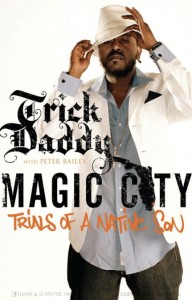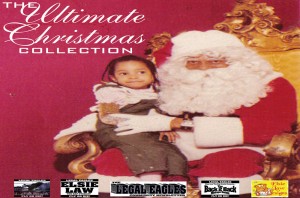The Nineteen Ninety Fly™ Video Of The Week
Love Your Life: Thursday, December 29, 2011
Love Your Life: Wednesday, December 28, 2011
Merry Christmas
Love Your Life: Sunday, December 25, 2011
Book Excerpt Part 2: “Magic City: The Trials of a Native Son” By: Trick Daddy w/ Peter Bailey
 “That’s the thing about living in a world in which we’re all connected. Research even proves that babies born in the same nursery absorb each other’s pain. When one starts to cry, the others start wailing as well. I don’t care if it’s a hard pill to swallow. You’re responsible to someone. People can’t just go around pissing wherever they want. It will stink. Your actions affect the lives of others.” -From, “Magic City: The Trials of a Native Son” By: Trick Daddy w/ Peter Bailey
“That’s the thing about living in a world in which we’re all connected. Research even proves that babies born in the same nursery absorb each other’s pain. When one starts to cry, the others start wailing as well. I don’t care if it’s a hard pill to swallow. You’re responsible to someone. People can’t just go around pissing wherever they want. It will stink. Your actions affect the lives of others.” -From, “Magic City: The Trials of a Native Son” By: Trick Daddy w/ Peter Bailey
Book Excerpt Part 1: “Magic City: The Trials of a Native Son” By: Trick Daddy w/ Peter Bailey
 “In the early days, blacks weren’t allowed to own businesses in downtown Miami. After working all day at the white-owned businesses, black workers headed across the railroad tracks to Colored Town. The neighborhood was a shantytown. With no running water or proper sanitation it reeked of rats and disease. Nevertheless, the residents turned something out of nothing. Kind of like the way slaves used to sing those Negro spirituals to get them prepped and primed to pick cotton for hours in the grueling sun, folks in Colored Town turned a negative into a positive. We’ve been doing that ever since we got dragged here from across the Atlantic. We somehow turn our pain into joy, our cries into smiles, then get the world dancing.
“In the early days, blacks weren’t allowed to own businesses in downtown Miami. After working all day at the white-owned businesses, black workers headed across the railroad tracks to Colored Town. The neighborhood was a shantytown. With no running water or proper sanitation it reeked of rats and disease. Nevertheless, the residents turned something out of nothing. Kind of like the way slaves used to sing those Negro spirituals to get them prepped and primed to pick cotton for hours in the grueling sun, folks in Colored Town turned a negative into a positive. We’ve been doing that ever since we got dragged here from across the Atlantic. We somehow turn our pain into joy, our cries into smiles, then get the world dancing.
Look at the blues. B. B. King looks like he’s going through hell on that guitar, but go into any swanky spot like South Beach’s Prime 112 or Rue 57 in Manhattan and look at the smiles on those rich folk’s faces as they wash down filet mignon with cabernet while King plays in the background…
The folks there somehow turned that rat infested [hole] into a piece of paradise. D. A. Dorsey was one of the main movers and shakers. He used his skills as a carpenter to build homes for blacks much like E. W. F. Stirrup did several years before. Stirrup left the Bahamas at fifteen and soon started mixing in real estate and ended up buying out a white dude he worked for. He rented the homes he owned to the newly arriving Bahamians so they could get their foot on the door.
Dorsey took it further. He started buying land throughout the country, even some close to Fisher Island. A brother living close to the ocean was unheard of in those days. Blacks weren’t allowed to go to the public beaches, so Dorsey brought it to them. He even opened a hotel, bank, and school for blacks on his way to becoming the city’s first black millionaire. Colored Town’s main strip was booming.
In the 1930s folks called it Little Broadway. Northwest Second Avenue was what people called the center of the “Harlem of the South.” All the greats from Billie Holiday to Count Bassie flocked there after finishing their shows down in Miami Beach, where blacks weren’t allowed to stay ate the hotels. They got rocking and grooving right there in the shadows of downtown. The soul food cafes and jazz lounges made Northwest First Court from Second to Twentieth streets the place to be. But the real VIPs hung at the Sir John.
The good times wouldn’t last long. Officials decided to run the I-95 expressway right through the heart of Overtown for a faster route to South Beach. Thousands of folks were forced out when the place was flattened. Many moved to Liberty Square, but those white folks in Liberty City saw us coming and freaked out. They built a wall at the south end of the projects to keep us out of their section. Other folks moved to Scott-Carver Houses. Harlem died. In place of those famous nightclubs, crack houses now stand. Homeless folks sleep on flattened cardboard boxes in the vacant lots.” -From, “Magic City: The Trials of a Native Son” By: Trick Daddy w/ Peter Bailey



